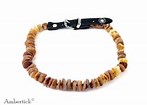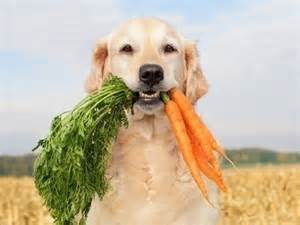Hamsters




Hamsters
Hamsters should be kept clean and dry. A jam jar placed on its side will often be used by the hamster as a toilet and this can be cleaned out quite easily. Use essential oil to wash the cage, just as for rabbits.
Hamsters seem to like the smell of lavender, which is handy because it is antiseptic and antibiotic and will keep the hamsters healthy.
Add 2 drops of lavander oil to 2 litres of water and swish this around the whole of the cage after you have washed it in the usual way.
If your hamster has a high temperature, leave it alone. This can be rather difficult to do because the creature may look so ill as to be almost dead, but it will soon recover so don't panic. Hamsters store their food and this can rot, so use dried herbs and essential oils on the floor of the cage to prevent maggots.
Reference: The Fragrant Pharmacy:V.A.Worwood
Rabbits



Rabbits
In the wild, rabbits run about in clean fields and woods, but in captivity they often have to put up with urine-soaked straw under their feet in confined living quarters. It really is only fair to ensure that their cages are kept clean and fresh. Urine and faeces that are allowed to rot cause bacteria and all their attendant problems, so clean your rabbits out regularly and put the hay up off the floor, where it can be taken as feed. Dried herbs on the bottom of the cage stop maggots from breeding.
Flies spread myxomatosis, a man-made disease that was devised to control the wild rabbit population. This is another reason to prevent flies and maggots in the cage.
Sniffels and colds affect rabbits. Use eucalyptus, peppermint or tea tree on their fur - chest and back. Also wash the cage out in water that has had tea tree or eucalyptus added - this will also put an end to the fleas.
Canker can affect rabbits in the same way as cats and dogs. Apply to the affected ear a little olive oil to which 1 drop of lavender has been added, Tea tree can also be used and helps to prevent any infection from the scratching.
Reference: The Fragrant Pharmacy: V.A.Worwood
Flea Collars




Flea Collars
Most commercially sold flea collars are made with highly toxic chemicals which can be absorbed through the skin of our pets, and us. Cats often cannot bear being near these as they try desperately to lick and groom the area surrounding the collar, only increasing the level of chemical absorbed.
Fleas spend only about one-eight of their life on an animal, so if the flea has gained entrance into your home via your pet the remaining seven-eights of its life will be spent in your pet's bedding or on your carpet and furniture. Contrary to popular belief, fleas prefer walking to hopping about on their powerful legs, so spotting them isn't just a matter of waiting to see a little high-jumper.
An essential oil collar provides excellent protection against fleas and is very cheap and easy to make. Buy a soft material collar - a cheap one from a market will do - and soak it in the following mixture.
| Half teaspoon alcohol | mix with |
| 1 drop Cedarwood | 4 Garlic capsules or |
| 1 drop lavender | 2 drops of the following mixture: 1 teaspoon vegetable oil in which 1 drop garlic essential oil has been diluted. |
| 1 drop Citronella | |
| 1 drop Thyme | |
You are using the garlic capsules, break them open and add the contents to the mixture. Blend your ingredients together and pour it over the collar until fully absorbed . Leave to dry before putting around your pet's neck. It should be effective for one month.
Blood is the fleas' only food, but when the garlic is detected in it they will leave well alone. Add 1 or 2 capsules of garlic to your pet's diet during spring and summer, depending on its size.
Reference: The Fragrant Pharmacy: V.A. Worwood
Diet - Dogs



Diet - Dogs
Dogs and cats fed on tinned food may not be hungry but could well be deficient in vitamins and minerals. We can help them nutritionally by giving them bone-meal for calcium , kelp and alfalfa for beneficial minerals, dolomite for nerves and fretfulness, brewer's yeast for vitamin b and trace elements, and dried liver tablets. Cod-liver oil two to three times a week will give the coat a shining gleam and provide vitamins A and D, but do not give more than 2 or 3 drops each time.
Good health is very much a matter of good nutrition for animals, as it is for humans.
Reference: Fragrant pharmacy / V.A.WORWOOD

 How to resolve AdBlock issue?
How to resolve AdBlock issue?